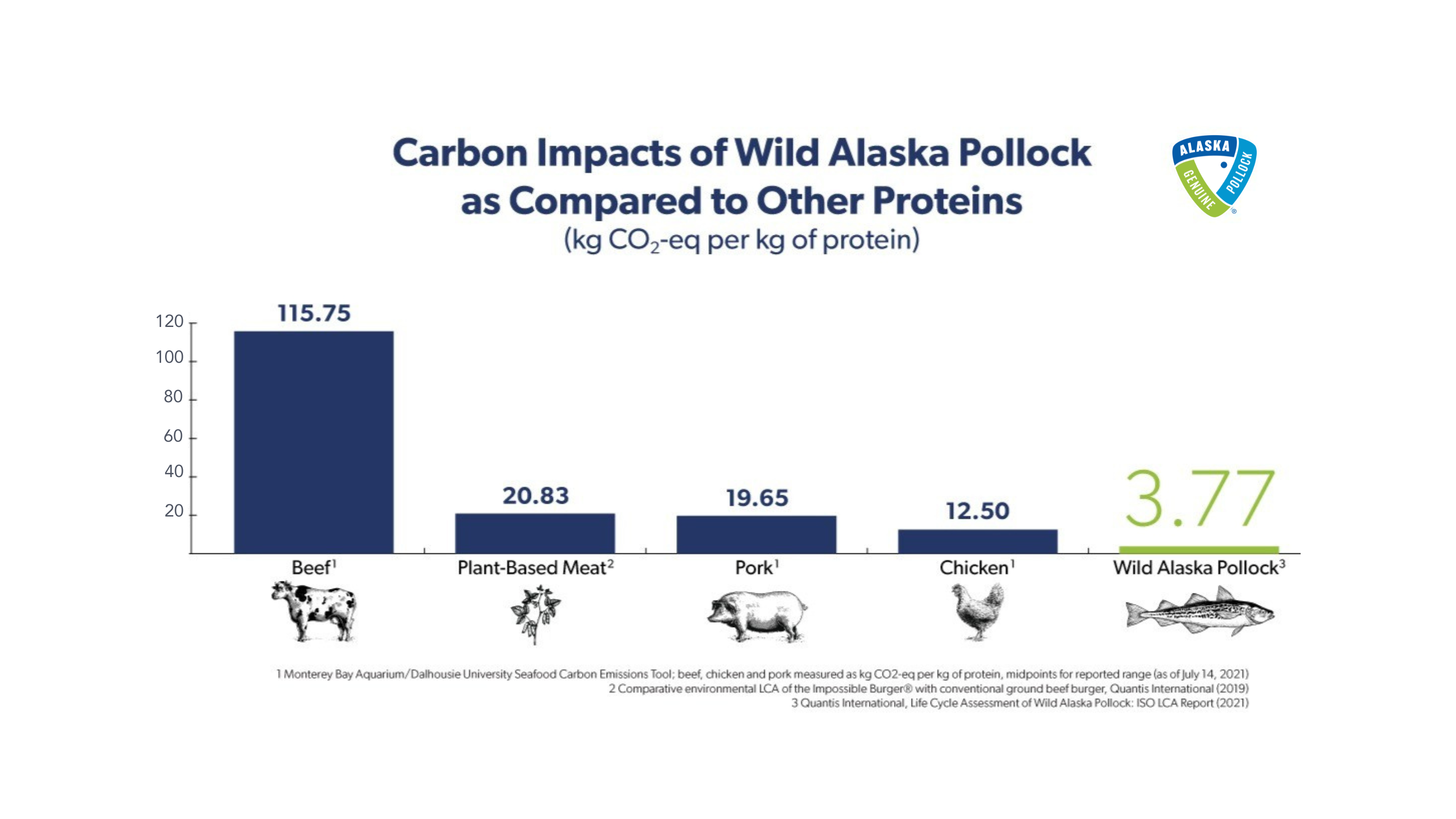Craig Morris , July 09, 2025
Making your plate climate friendly

In response to the increased consumer demand for sustainable protein products that are produced with low greenhouse gas emissions, in 2021 the Genuine Alaska Pollock Producers (GAPP) partnered with a leader in global sustainability research, Quantis, to conduct a peer-reviewed Life Cycle Assessment (LCA) for the Wild Alaska Pollock industry. The LCA is an internationally recognized approach that evaluates the potential environmental impacts of products throughout their lifecycle.
The results of that LCA showed that Wild Alaska Pollock has a lower carbon footprint and delivers more protein per KG of greenhouse gas emissions than many other animal proteins, including beef, chicken, and plant-based options.
This year the Wild Alaska Pollock industry partnered with another leader in global sustainability research, Dalhousie University, to repeat that study to determine what the impact of investments the industry has made in improving its efficiency and sustainability have had on Wild Alaska Pollock's overall carbon footprint. We hope to have the results of this new study presented at the Wild Alaska Pollock Annual Meeting on September 18 in Seattle.
Until then you can read the full report for the 2021 study here. We are confident that regardless of the results of this latest study, they will continue to confirm Wild Alaska Pollock as a carbon-friendly protein choice that is both a highly nutritious food that also helps meet the challenges of the present to protect the environment for future generations.

